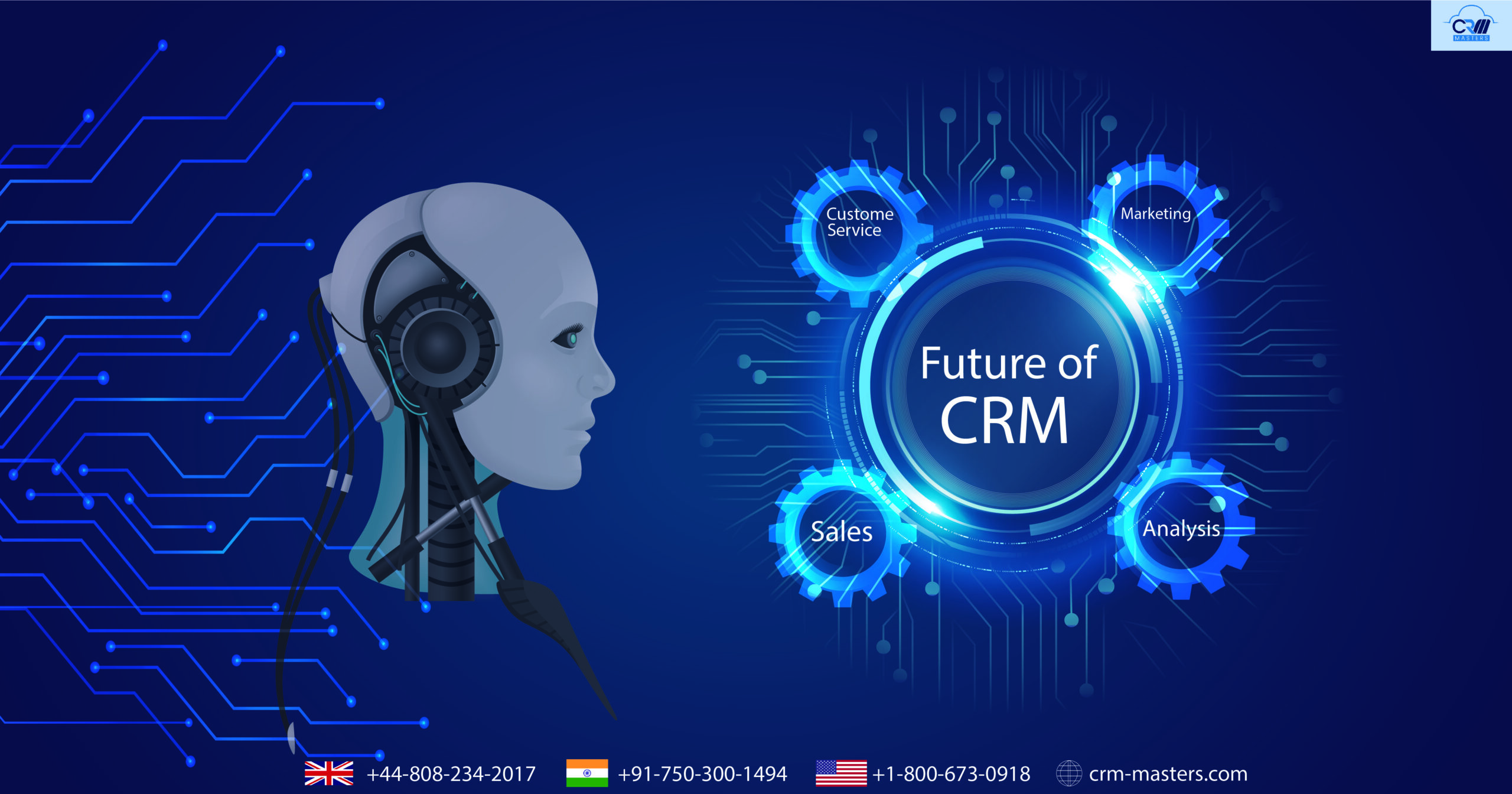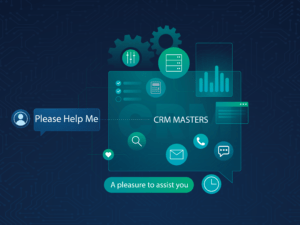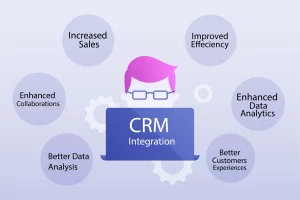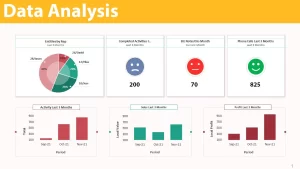
Future of CRM: Revolutionizing Customer Satisfaction
Customer Relationship Management system plays a vital role in driving the growth and success of every business. As technology advances, the future of CRM tools has tremendous potential to enhance customer interaction and gain a competitive advantage for businesses.
In this article, we will explore the key trends and technologies that tell the future of CRM and how organizations can leverage them to forge stronger customer relationships.
Understanding the CRM Software
To understand the future of CRM, it is necessary to understand its evolution. The concept of CRM started in the late 1990s with a focus on sales force automation (SFA). This technology allowed the sales team to organize their contacts and streamline their sales process effectively.
Customer Relationship Management (CRM) is a collection of many tools that helps businesses in managing their interactions with customers and clients. CRM started as a contact management system, but it’s evolved into a comprehensive toolkit that automates and simplifies sales, marketing, and customer service operations.
Customer Relationship Management helps businesses in managing customer data, monitoring customer behavior across different channels, and providing personalized and consistent client experiences. A CRM system provides a central location for customer data and automates and simplifies sales, marketing, and customer service operations. With a CRM system, businesses can manage customer interactions effectively and grow their business.
How CRM Integration Improves the Customer Experience
An integrated customer relationship management (CRM) system can provide a single view of each customer in one central location. A CRM platform allows you to tailor your relationship with your contacts.
In addition to giving employees the information they need to succeed, this technology gives power to the customer. When businesses adopt CRM platforms and integrated business technology, customers may experience great personalization during their buyer journeys. This makes it easier for leads to discover the products and services they need because the teams managing these customer journeys have all the information to create a meaningful experience. When the customer journey is seamless, the customer’s life is more accessible and they’re more likely to choose to do business with the company in the future.
Customer centricity will continue to be at the core of CRM in the future. Integrated CRM technologies are available and ready to help companies deliver a seamless customer experience. However, adoption rates show that companies have yet to embrace these business tools fully. Let’s see them now.
CRM Technology as a Single Source of Truth
For businesses, the use of CRM industry trends such as SSOT (single source of truth) will become important in the future. SSOT, as MuleSoft defines it, is “the process of consolidating data from multiple systems within an organization into one location.” A company that uses its CRM platform as SSOT enables it to link employees, teams, divisions, and even partners to deliver a unified customer experience.
A unified CRM unifies disparate information, allowing you to collect data more efficiently and make data-driven decisions. A unified CRM creates a smooth flow of information across the front and back offices. For example, a unified marketing CRM can connect marketing functions such as lead a generation with the sales pipeline, and then with service operators so that you can manage a customer life cycle.
For example,
80% of survey respondents believe that a single point of customer truth “would create ‘meaningful’ value or ‘necessary’ for their organization.”
80% of the decision-makers say they’re ‘increasingly using’ their CRM to collect data from different systems.
Only 25 percent of respondents say their CRM provides a ‘single point of truth’ today.
A unified CRM tracks customer behavior and collects real-time insights. It helps you understand your customer’s long- and short-term requirements. Just as the heart moves blood to other body parts, a CRM moves important information to different business areas.
Customer Relationship Management (CRM) will continue to grow in importance as a one-stop shop for all information, from employees and departments to teams and stakeholders. Over the next few years, we will see CRM become a technology used by the customer-facing team and the whole organization.
Future of Customer Relationship Management
Multi-Channel Integration
Another aspect of CRM that will change in the future is the ability to integrate multiple channels, including email, social media, and mobile apps. Today, customers expect a consistent and seamless experience across all channels. Organizations must meet these expectations to stay competitive. Integrating multiple channels into your CRM technology allows you to provide a smooth customer experience and answer customer concerns efficiently.
Leverage Customer Data
Another trend that will shape CRM in the future is customer-centricity. Companies focused on products in the past, but today it’s all about customer experience.
CRM system collects, analyzes, and leverages customer data to implement a customer-centric strategy. The customer-centric approach is based on understanding the needs, preferences, and customer experiences of your customers. The data collected is used to deliver personalized customer experiences.
Data Analytics
Data analytics is the next area of CRM that will continue to develop and play an essential role in the future. Today, organizations produce huge amounts of information. CRM systems can collect, analyze and leverage this information to inform business decisions. Integrating data analytics into your CRM system will help you better understand your customers and make informed decisions based on data to improve your customer experience.
AI Functionality
Artificial Intelligence (AI) is increasingly important in sales and marketing. AI is integrated with CRM systems and promises to complement, rather than replace, the human element in the sales process. In the future, sales professionals will rely on AI to supplement their skills and capabilities. AI reduces manual data entry, consolidates disparate databases, and captures the complete customer invoice. AI can also identify data anomalies, anomalies, duplicate data, and other mistakes that can compromise CRM data.
Also Read: 8 Common Mistakes Every Business Did While Using CRM
How CRM Helpful for Your Business
Every company has some version of a CRM system, even if it’s documented in filling cabinets. However, any business that wants to concentrate on improving employee efficiency and customer happiness at scale would need to make a future investment in CRM technology.
The future of Customer relationship management at your business will likely change depending on the technology you use and how it helps your team collaborate to service clients more effectively. When you decide to invest in a CRM platform, you must find a system that enables you to move fast and ramp up quickly, and that integrates into your wider tech stack. This implies that the tools must be user-friendly, cloud-based, mobile-optimized, and adaptable to your particular demands.
A trusted implementation partner should supplement your investment, and help you decide which CRM software or CRM trends you need now, and which to consider in the future. Your employees may then be onboarded and educated to utilize the new capabilities after the CRM system has been customized and put into place, ideally with personalized on-demand learning like that provided. A CRM provider should be a trusted implementation partner, not just a line in the budget.
After the system is fully up and running, your company has the power to organize its customer data better. When your employees use one central platform-that single source of truth-they no longer have to search for information in multiple places to ask others for data.
Conclusion
Customer Relationship Management (CRM) implementation partners have been at the cutting edge of technology for a long time. The CRM platform of the future is not necessarily technology-driven, although that will undoubtedly play a role in your business.
In less than 20 years, the Internet has become an integral part of everyday life in most of the world. Customer relationship management (CRM) has changed the way businesses operate. Consumers expect one-on-one interactions, even with the biggest brands, and CRM can support almost any business globally at any time.
Companies need to meet these requirements with the help of the right CRM. A solid but adaptable CRM solution that integrates well with your existing technology, helps your customer in how to use it effectively and then uses it as a one-stop shop throughout the customer lifecycle not only meets these requirements but exceeds them. The future of CRM technology holds immense potential for businesses across various industries.
Are you looking for CRM Software for your business?
CRM Master’s Infotech is the leading CRM software company that helps you to grow your business. With our expertise in CRM, businesses can meet the evolving needs in this dynamic landscape.
Sweet Bonanza 1000 shining crown Shining Crown matbet Sweet Bonanza 1000 Fortune Rabbit pusulabet İmajbet


















